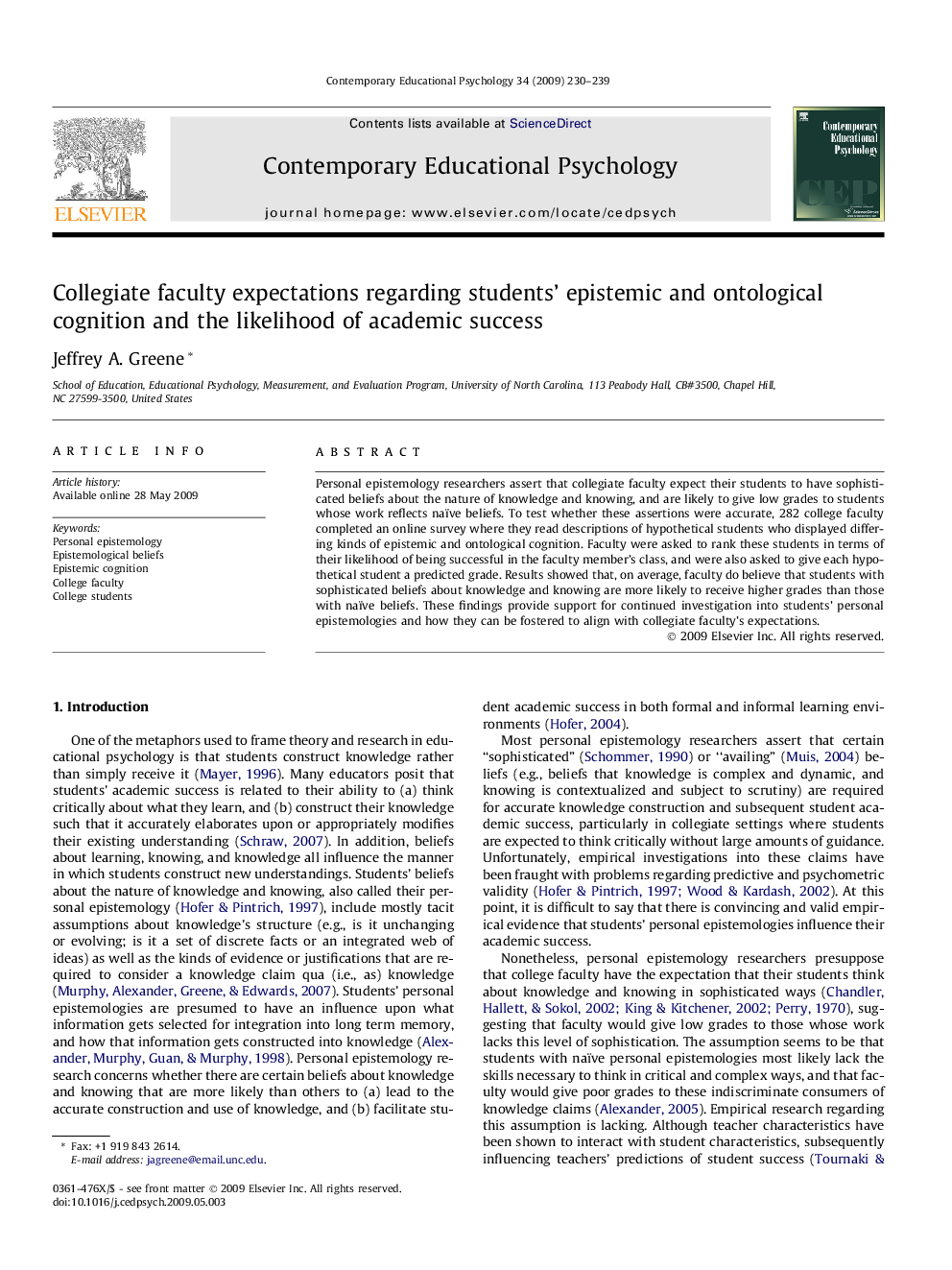| Article ID | Journal | Published Year | Pages | File Type |
|---|---|---|---|---|
| 352812 | Contemporary Educational Psychology | 2009 | 10 Pages |
Personal epistemology researchers assert that collegiate faculty expect their students to have sophisticated beliefs about the nature of knowledge and knowing, and are likely to give low grades to students whose work reflects naïve beliefs. To test whether these assertions were accurate, 282 college faculty completed an online survey where they read descriptions of hypothetical students who displayed differing kinds of epistemic and ontological cognition. Faculty were asked to rank these students in terms of their likelihood of being successful in the faculty member’s class, and were also asked to give each hypothetical student a predicted grade. Results showed that, on average, faculty do believe that students with sophisticated beliefs about knowledge and knowing are more likely to receive higher grades than those with naïve beliefs. These findings provide support for continued investigation into students’ personal epistemologies and how they can be fostered to align with collegiate faculty’s expectations.
